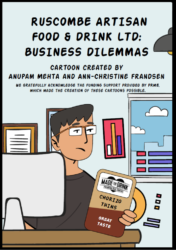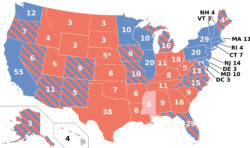By Professor Michael Saren Department of Marketing, Birmingham Business School, University of Birmingham The US Government has rebranded their Department of Defense as the Department of War. President Trump says this change “demonstrates our ability and willingness to fight and win wars on behalf of our Nation at a moment’s notice, not just to defend”. … Continue reading “Branding as an Extension of War: Bring Back the War Office?”
Category: Uncategorised
Transforming sustainability pedagogy using cartoon-based real-life case studies: a framework
By Dr Anupam Mehta and Dr Ann-Christine Frandsen Birmingham Business School, University of Birmingham PRME funded research Innovative Pedagogic tools for learning and teaching Sustainability and Responsible Business Sustainability education in business schools is crucial for preparing future leaders and entrepreneurs to address the urgent global challenge of climate change and its impact on communities … Continue reading “Transforming sustainability pedagogy using cartoon-based real-life case studies: a framework”
Dear Old Dirty Birmingham and its Many Bin Strikes
By Professor John Bryson Birmingham Business School, University of Birmingham Narratives or stories that are told of a place really matter. They influence resident perceptions of a place and also those who are making investment decisions that could result in job creation opportunities. One Dublin narrative is constructed around the phase “Dear old Dirty Dublin”. … Continue reading “Dear Old Dirty Birmingham and its Many Bin Strikes”
Saoirse Ronan has a point – but independent travel is worse for girls and young women living in areas of high deprivation
By Dr Sarah Brooks-Wilson Department of Social Policy, Sociology and Criminology American-Irish actor Saoirse Ronan has a greater platform than most and her short remarks on the Graham Norton show recently have sparked widespread discussions about personal safety strategies that women regularly use. Although research evidence and crime data support the view that personal safety … Continue reading “Saoirse Ronan has a point – but independent travel is worse for girls and young women living in areas of high deprivation”
Young People and Online Porn: A New Phenomenon?
By Dr Sophie King-Hill, University of Birmingham Prof. Kieran McCartan, University of the West of England David Russell, Development Lead & Service Manager: Thriving Survivors Lucy Harvey, Sexpression: Birmingham With easier access to the internet comes easier access to adult material. One thing is for certain – pornography is not going away. Safe and open … Continue reading “Young People and Online Porn: A New Phenomenon?”
How could the US election results impact the UK?
By Dr Anandadeep Mandal Birmingham Business School, University of Birmingham The U.S. presidential election results have a substantial ripple effect on the U.K., influencing areas like economic stability, security cooperation, trade agreements, and global environmental goals. As the U.K.’s closest ally, U.S. leadership plays a pivotal role in shaping U.K.’s policies, especially regarding trade, military … Continue reading “How could the US election results impact the UK?”
US Election 2024: Can we trust the polls?
By Dr Anandadeep Mandal Birmingham Business School, University of Birmingham The reliability of 2024 U.S. election polls is a critical question given recent polling inaccuracies in key election years. Historically, polls have struggled to capture precise snapshots of voter preferences, especially when predicting voter turnout, demographic preferences, and unexpected political shifts. Polling accuracy depends on … Continue reading “US Election 2024: Can we trust the polls?”
Paris 2024: Hijab Ban Undermines Gender Equality Milestone
By Dr Ibtihal Ramadan, Research Fellow EEI, School of Education A key point to note from the 33rd Olympic games in Paris, France that concluded just ten days ago, is the hijab ban for French women athletes. (Un)Surprisingly, the ban occurs amidst an important landmark of Paris Olympics: it has been celebrated to be the … Continue reading “Paris 2024: Hijab Ban Undermines Gender Equality Milestone”
Can Humans Learn “Straight from the Horse’s Mouth”?
By Dr Harriet Clarke Social Policy, Sociology and Criminology Social science researchers often consider whose voices could advocate for social change. So – and do bear with me – do social scientists have any business asking, ‘Can ‘listening’ to non-human animals support our role in building better lives for all living beings’? Colleagues and I … Continue reading “Can Humans Learn “Straight from the Horse’s Mouth”?”
The two-child cap: who benefits?
By Dr Emily Ball Department of Social Policy, Sociology and Criminology The controversial continuation of the two-child cap by the Labour administration means low-income families will not receive welfare support under Universal Credit, nor will they be able to claim child tax credits, for their third or any subsequent children. This impacts 1 in 9 families … Continue reading “The two-child cap: who benefits?”










